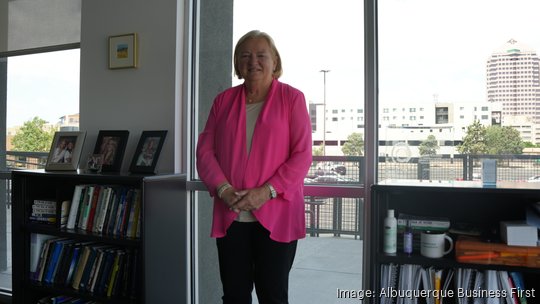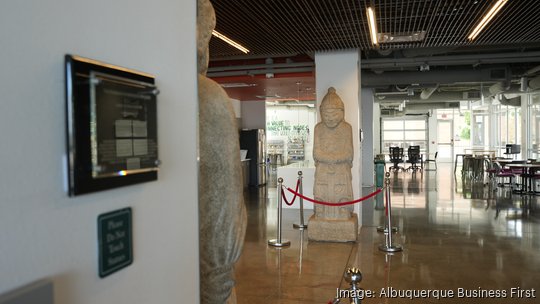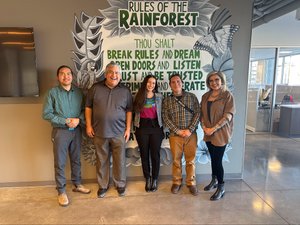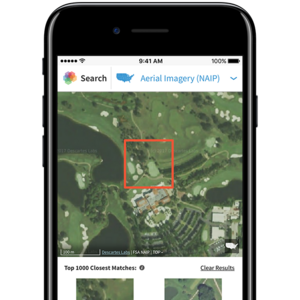
The Covid-19 pandemic was challenging for UNM Rainforest Innovations.
One of the primary goals of the nonprofit, owned by the University of New Mexico Board of Regents, is spinning startups out of the state's flagship university. Its startup numbers were high leading up to 2020 — 12 startups launched in both 2016 and 2017, and then another 11 in both 2018 and 2019.
The pandemic and the ensuing shutdowns dropped those numbers to just four startups in 2020 and six in 2021. There's been a slight uptick over the past couple of years, with eight startups spun out in both 2022 and 2023.
Lisa Kuuttila, the CEO and chief economic development officer for UNM Rainforest Innovations, expects about the same number in 2024.
If the Rainforest does end up helping create eight startups this year — Kuuttila said it's already launched seven this fiscal year — the nonprofit would hit 170 startups over nearly two decades of operations.
"We're proactive about our marketing," Kuuttila said. "We're always reaching out to investors and entrepreneurs and of course companies, too, about taking on these really early-stage technologies."
Many of those 170 startups aren't active; more than 50% of new companies fail after five years, Bureau of Labor Statistics data shows, with factors like poor product and market fit and investor mismanagement typically playing roles in startups' downfalls.
Other startups supported by Rainforest Innovations provide more recent success stories. Those include companies like Circular Genomics, which raised just over $8 million in a Series A round earlier this year, TS-Nano, which plans to more than quadruple its current 10-person employee base over the next two years, and IntelliCyt, which Germany-based Sartorius AG acquired in mid-2016 for approximately $90 million.
Enthentica is another example. Charles Mendez Jr., the startup's CEO, paired up with James Plusquellic, Ph.D., an electric and computer engineering professor and its chief technology officer, to commercialize the technology Plusquellic developed at UNM.
That tech is a type of cyber security solution for embedded systems, like silicon-based microchips, for example. The startup can also incorporate biometric device identification into its software-based technology.
The startup, founded in 2016, has around a half dozen patents for its technology, managed through Rainforest Innovations. It also has a couple of ongoing major projects, which include an early deal with a "major defense contractor" and another focused on application-specific integrated circuit, or ASIC, chip design, Mendez Jr. said.
It's raised about $500,000 to date. Another contract Enthentica landed generated around $1 million, he said, with other ongoing contracts generating "a little revenue every year."
"We are not the typical startup model, where you run out with a lot of vision and a lot of enthusiasm about what you can make of your business," Mendez Jr., whose business career has included companies in Georgia and Florida, said. "We've been kind of slow but steady, and utilize our resources very carefully so we don't run out of money."
He said Enthentica used both virtual and physical space through Rainforest Innovations, as well as having the nonprofit manage its intellectual property.
"They provide a lot of, I call it the small stuff that costs money that you forget to think about when you're starting a little business," Mendez Jr. said. "They provided a lot of support like that.
"That's where I think the value is," he added. "If you license their [intellectual property], they'll help marshal you along to get you kind of kicked out of the playpen and out into the world."
Licensing, patent protection key parts of Rainforest's model
Rainforest Innovations works by identifying promising technologies developed by University of New Mexico (UNM) faculty, pairing those technologies with more business-minded partners and protecting those technologies through licensing agreements and patent filings. It also markets university tech and startups built around that tech to prospective investors and others in the state's wider entrepreneurship community.
The nonprofit generates revenue via those agreements and patents; data provided by Rainforest Innovations shows it pulled in over $50 million in fiscal years 2020 and 2021, which Kuuttila said came mostly from litigation work related to patent protection. Revenue from licensing agreements comes when a company that signed an agreement with Rainforest Innovations is sold, for example, or direct royalties from startup operations, she added.
That's much higher than Rainforest Innovations' revenues in a typical year. Kuuttila said the nonprofit expects to bring in about $10 million in fiscal year 2024, and it also receives some funding from UNM alongside its own revenue.
Physical lab, office and meeting spaces are available for startups within the Lobo Rainforest Building in Albuquerque's Innovation District, where Rainforest Innovations occupies much of the first floor. There are eight startups that currently use space inside the building, Kuutilla said.
The nonprofit makes small investments in startups, too, with dollar amounts usually around $100,000.

While Rainforest Innovations' model won't change going forward, Kuuttila said she expects startup creation numbers to increase closer to those seen pre-pandemic, potentially reaching double-digits again before the end of the decade. That jump could in part be driven by UNM's research budget, she said, through the university's Office of the Vice President for Research.
That office's operations budget hovered between $7.5 million and $7.8 million over fiscal year 2020 to 2022, according to budget documents available on its website.
An arthritis-focused med-tech startup spins out
While Enthentica is an example of a startup spun out by pairing a UNM faculty member with a more experienced businessperson, a newer company presents a slightly different case.
Dmitri Madden, a current doctoral student at UNM, and Dr. Nathan Morrell, an orthopedic faculty at the university's School of Medicine, pitched their startup Sandia Medical Technologies at an event inside the Lobo Rainforest Building on May 2.
The startup is built around a hand implant technology conceptualized by Morrell over the course of his 15-year hand surgery practice. It's a sort of prosthetic replacement for thumb joints, a common point of pain for people suffering from arthritis.
It's one of the most common sites for surgical arthritis reconstruction, Morrell said during the startup's 10-minute pitch.
Madden told New Mexico Inno that he and a small team of UNM engineers designed the prosthetic technology that Morrell conceptualized. The startup won a design competition in August 2021, which gave the team $30,000 to start out. It's pulled in a bit of additional funding from other UNM awards and pitch competitions.
Sandia Medical Technologies, alongside a few UNM students who originally helped devise the technology, provisionally patented the tech and have filed a PCT patent — a type of international patent treaty that allows patents to apply with more than 155 contracting states, according to the World Intellectual Property Organization's website — for it through Rainforest Innovations. The nonprofit paid for those patent applications and currently manages its patents.
Commercializing medical devices can be "incredibly daunting," Madden said. He added that each stage is "complicated and expensive."
Rainforest Innovations has helped Sandia Medical Technologies during its own early-stage medical technology development. That includes connecting with investors, managing patents and providing information about pitches and other funding opportunities.
Madden said that help enables startups — like Sandia Medical Technologies, Enthentica and others — "the ability to get on your two feet."









